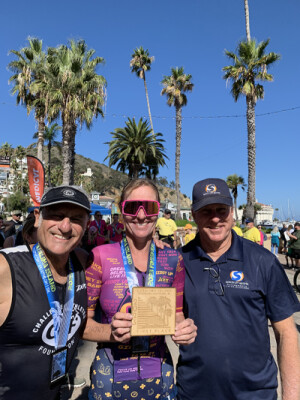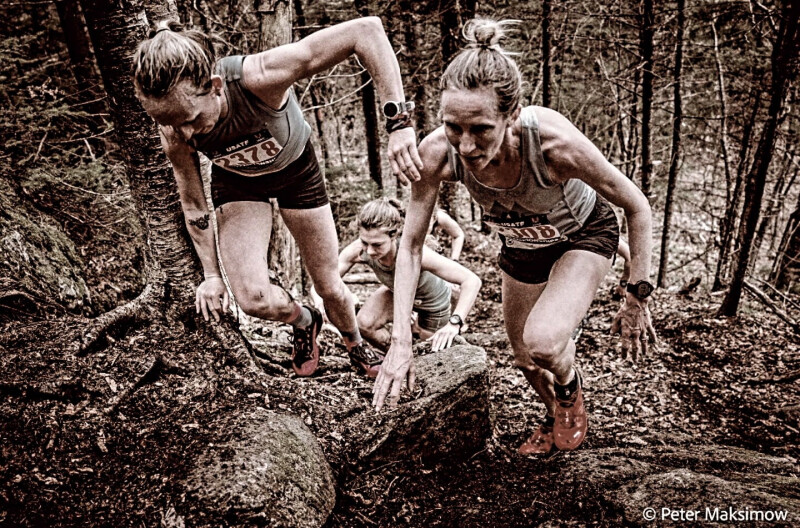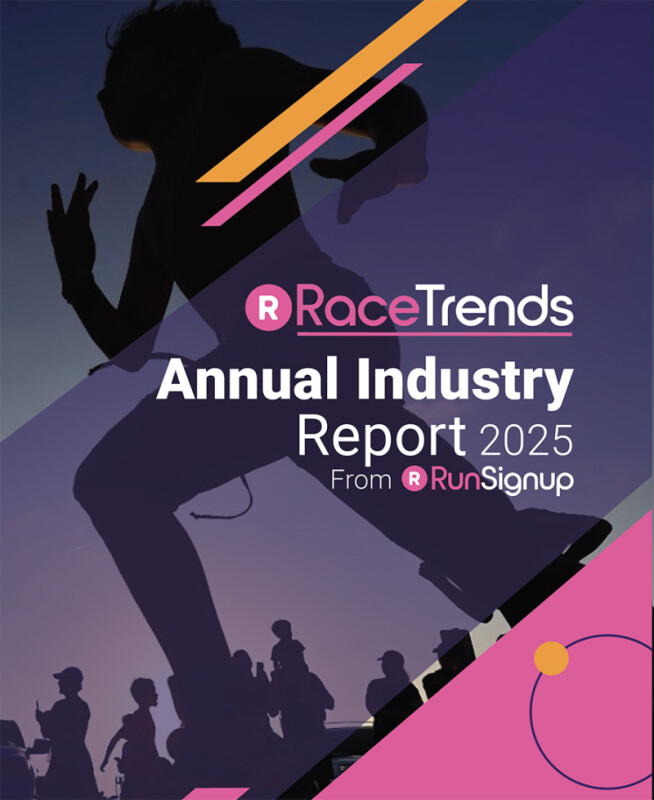Road and trail running are growing at a rapid pace and while this is exciting for all involved in the industry, it also means that there is a growing amount of waste that is produced from vendors, participants and spectators. As the industry fought through the pandemic, our sustainability efforts were put aside in favor of more single-use plastic, plastic shields and non-recyclable containers.
But now as we return to racing as usual, leaders in the industry need to start implementing sustainability efforts wherever they can. These efforts can often be seen as an extra cost and lift for businesses and race organizers, when in reality that’s not always the case. As the race director for the Run Catalina Island race series, I wanted to make sure that our organization and those that work on our events with us were putting in the effort to produce events that are able to showcase the island’s beauty, while leaving no trace behind.
An often overlooked element of a sustainable event is making sure that the vendors and partners you’re bringing in also have their own eco-initiatives in place. Suppose your organization is ensuring each step of your own work has sustainability in mind, but they bring in a vendor who has multiple single-use plastic items, plastic wrapping or Styrofoam peanuts that have the potential to be left behind or create extra non-compostable waste at your event. In that case, it’s still a reflection of your event’s sustainability efforts since your event in the end led to the creation of that waste.
As an example, a unique sustainability-focused partnership we’ve made is with Fulton, a sustainable insole brand that we brought on as a 2023 race sponsor for the Catalina Island Half Marathon. Fulton has a variety of insole designs that allow the brand to provide a fit for all feet. The company focuses on providing support that improves whole body wellness, as well as sustainability by only using regenerative, plant-based materials to make its products.
As a sponsor, Fulton also made a donation to the Catalina Island Conservancy for every participant that signs a “No Trash Left Behind” pledge, as an effort to protect the Catalina Mahogany that is only found on Catalina Island.
This is a great example of sustainability efforts that come with little to no cost to your business. Not only did we partner with a sustainable brand, but we also were able to get participants to engage in their own eco-initiatives by signing our No Trash Left Behind pledge and we found a sponsor that was willing to donate to a sustainable-focused charity on the race’s behalf.
Focus on Sustainability
If your brand or event donates to nonprofit organizations, another eco-effort you can make is to have that organization be one that is focused on sustainability. With each registration of one of our Run Catalina Island events, a portion of the proceeds are directly donated to the Catalina Island Conservancy. These funds are not only going towards a nonprofit that focuses on conserving Catalina Island, but it has a direct relation to us, as the events take place on the island.
Another sustainable step that is starting to catch on is cupless races. To take this step without taking on the extra costs of reusable cups, we encourage runners to have their own water containers that can be refilled at our water stations.
I understand that this method isn’t going to be realistic for all races, but it can make a big difference and even save you money. This can even work for businesses outside the running industry that provide plastic water bottles or water stations for employees.
If getting rid of these cups isn’t possible, then look into other methods to cut waste. As a result of our cupless races, we no longer serve any single-use plastic at the finish line. Everyone has their own cup to use already.
Examples we’ve implemented into our events are using bungee cords instead of zip ties, medals made of sustainable materials and mandating that vendors can’t use packing peanuts or plastic for shipping.
Other ideas include participants having the option to opt out of race day merch in exchange of having a donation made in their honor, donation bins for clothes left at the start and finish lines and working with local bike rental shops to give discounts to participants who bike instead of drive to the event. Even these little steps can make a huge difference in the long run, which is really what sustainability is all about.
A more unique but still accessible eco-initiative that events and businesses can make is to get a sustainability certification. A certification is an excellent way to actually measure the difference you’re making, while gaining a valuable asset that shows others you’re making strides to make your community a cleaner and healthier place to live.
There are a variety of organizations that will review your event or business and provide certificates to those who meet the standards. Run Catalina Island is currently working with the world’s leading responsible sport certification, the Council of Responsible Sport. At our upcoming event, they will be attending the race and measuring our sustainable efforts throughout the event — if standards are met, we will be a certified event.
First Step: Commit
So what does this all mean in the end for the racing business?
Overall, my key tips for race directors and businesses in the run specialty space is to look into all the waste that your event or business is producing and then find what alternatives are available to replace that waste. Will they cost you more initially but save money in the long run, or will they even save you money right off that bat?
Also, find ways to get your participants and employees involved with their own eco-initiatives. Can they sign a pledge to leave no traces behind or choose to make a donation to a sustainability-focused charity? This small step can help create a chain reaction of getting more people aware of their own waste contribution and give them a feel-good moment of putting in effort to help the environment.
If you’re making these strides, then you should definitely be researching what certifications your business qualifies for that highlight your sustainability efforts.
And last, but not least, find other organizations that are also creating eco-initiatives and find out how you can work together, because there truly is power in numbers.
Mike Bone is a leader in the endurance sports industry, as he has been involved in owning and operating sports marketing and management companies in Southern California for more than 25 years. Bone is the president and CEO of Spectrum Sports Management & Timing Services, which produces notable events in California including the Run Catalina Island race series, LA Tri series and Bike The Coast. On top of managing these events, he has created and manages several dozen sporting and charity events throughout California. Last year, Bone also joined the Special Events Committee on Catalina Island as a new committee chair member. Bone was born and raised in Southern California and is a graduate of the University of California at Irvine, with a degree in economics. He is married to his wife, Bonnie, whom he met at UC Irvine and has two sons, Andy and Matt.






